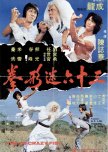
The 36 Crazy Fists
2 oamenii au considerat această recenzie utilă
Better than a sleeping pill if you have insomnia
The first ten minutes of 36 Crazy Fists showcased Jackie Chan working with the actors in the movie. To be clear, despite many posters and VHS/DVD covers, he was not in the movie. He was the martial arts director and due to contractual issues was not allowed to act in it. He dodged a bullet.Wong Tai Kwong is befriended by two Shaolin monks when they rescue him during a fight. Turns out his father had been murdered by the gang for not paying protection money. The two monks talk their sifu into training him so that he can have his revenge. Most of the time Wong does chores and only when a passing drunk fights with him does he learn any kung fu. Eventually, he has to fight two thugs from the gang in duels and finally the Big Bad at the end. That's it. There was a lot of "comedic" subterfuge thrown in but the story was thin even by kung fu standards.
Aside from Ku Feng and maybe Chiang Cheng, everyone else was about as interesting as wallpaper paste. Tony Leung Siu Hung would go on to act in Ip Man. He also became a respected martial arts director, including working on Ip Man. But this was not Ip Man. This was not even a bad Jackie Chan movie. The acting was abysmal and the story was as slow and uninteresting as the fights.
But @Butterfly this was a movie with Jackie Chan as the martial arts director so the fights must have been great-right? Wrong. The fights were s-l-o-w. It was either kung fu posing or a bad kung fu dance off. The fights used many of the same poses over and over occasionally throwing in a back flip or two. The funniest bit in the whole movie was when they sped up Ku Feng having a meltdown and it made me wish I could do the same thing. Or that they would speed the whole movie up and let it be a Chipmunk Martial Arts Movie Special. At least if they'd sped the action up, the fights would have been normal speed. People missed their marks and one stuntman literally rolled under a fighter for him to jump over. The fights were painfully bad.
If the fights, story, and acting weren't bad enough, at one point they sent a prostitute into the monk's bedroom to blackmail him into training Wong. For way too long her bare breasts filled the entire screen as she shook them, and shook them, and shook them. I truly cannot think of one thing to recommend this movie. Unless you are on a mission to see anything Jackie was involved in or fancy watching the bouncing boobies, I'd avoid this disaster.
9/15/23
Considerați utilă această recenzie?

Blood Of The Dragon
2 oamenii au considerat această recenzie utilă
Această recenzie poate conține spoilere
"I don't have time to die"
When Jimmy Wang Yu jumped off the Shaw Brothers ship, he sailed to Taiwan and made seven films there in 1971. Blood of the Dragon aka The Desperate Chase was one of those films. This film boasted many Taiwanese regulars-Lisa Chiao Chiao, Yi Yuan, Lung Fei, and Miao Tian. The fights, as many were from this time, utilized weapons instead of fists and kicks.A young beggar is asked by a dying rebel to take a small bamboo container with a SECRET LIST to the prince. Jimmy Wang Yu's White Dragon uses his silver spear to save the boy when Lung Fei and his goons capture him to acquire the list. The White Dragon/Lung Tai and Ni Chiu take the list to the prince but are attacked as the prince is holding a grudge against Lung Tai. The prince uses a trick sword and Lung Tai's ambivalence about fighting the prince to wound the legendary warrior in white. Lung Tai and the boy escape to Lisa Chiao Chiao's restaurant where more bad guys are waiting to attack. After defeating or running off the bad guys all while bleeding copious amount of blood, Lung Tai explains that the hotheaded prince is actually a true patriot and at the top of the Secret List's names of rebels. The prince and Lung Tai make nice before Miao Tian and Yi Yuan bring their forces against the restaurant to retrieve the list.
I know that Wang Yu has been revered by kung fu fans but I've never cared for his acting. He tends to come across as stiff and smug and his fighting sluggish. I was pleased that he was looser in this film and his fighting quicker. Lisa Chiao Chiao didn't have much to do except wring her hands and stand around. You Long as Ni Chiu did a good job and thankfully the kid wasn't written as distractingly annoying as so many were. Miao Tian, Lung Fei, and Yi Yuan had limited scenes but could always be counted on to be properly menacing as the bad guys.
With the exception of one fight most of the fights were one man against several or many. Lung Tai had his silver spear, while the prince had a magic blade, Lung Fei had a chain with a blade covered metal ball, and Yi Yuan had a sword that could transform into a chain and back again. Yi Yuan's general also had the equivalent of throwing stars. The fights ranged from well done to sloppy. When the big groups were fighting against one, there were times that stuntmen flipped or fell back when they were nowhere near the action. Bodies being thrown or kicked far distances looked absurd even for a wuxia. You could also see at least one person tuck the spear under his arm when he was supposed to be run through with it. Overall, the fights and there were a lot of them, were entertaining with high stakes and numerous combatants.
More importantly than Jimmy Wang Yu for me was director/writer Kao Pao Shu. She was one of the very few women who had the chance to direct these masculine movies. I wish there had been stronger women in the film but we can't have everything. The White Dragon was an anti-hero, the lone loner who wanted to be alone, but when the chips were down could be counted on to stand up and fight for what he thought was right no matter the cost. The pace of the film kept it engaging as the swords and spear flashed almost continually.
9/15/23
Considerați utilă această recenzie?
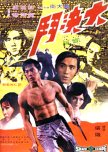
Această recenzie poate conține spoilere
Knife fights with a side of kung fu
The Iron Triangle of Ti Lung, David Chiang and Director Chang Cheh set aside kung fu for the most part and picked up knives instead for The Duel aka Duel of the Iron Fist. The grand duel foreshadowed from the start would pit allies against each other in a fight that could not be avoided.Set during the early part of the 20th century, Ti Lung's Tang Jen Chieh is the godson of a local Triad lord and brother to Ku Feng's Jen Lin. A hired killer, David Chiang's "Rambler," helps Jen Chieh when fights breakout. With buddy Hsiao Mao (Cheng Kang Yeh) they seek to protect Shen Tian Hung, but he is murdered during one of the huge brawls that begin the movie. Jen Chieh takes the fall for the fight, bids his girl Butterfly goodbye, and hides in the south until the heat is off. He returns home after numerous attempts on his life with only Hsiao and his now drunken brother on his side. The former accountant Kan has taken over the gang and is seeking his death. Jen Chieh is devastated to find that Hu Di/Butterfly is now a prostitute. With his world turned upside by treachery and death, Jen Chieh vows vengeance on those responsible.
The Duel's strength was the prickly bromance between Jen Chieh and the Rambler. Their complicated relationship gave depth to the impending collision. I've never been a David Chiang fan, but he and Ti Lung did have a nice chemistry together. I'm always happy to see Ku Feng, especially when he's a good guy. The problem I had with the movie was that the narrative felt poorly paced and needlessly confusing in others. Fortunately, the relationships between brothers and frenemies created a compelling movie when the plot lines didn't.
Tang Chia and Yuen Cheung Yan kept the fights interesting even when they were the few or the one against many. Close-ups were used which meant they couldn't have randomly flying bodies in a huge scrum. The slices and kicks were well timed and for a 1971 Hong Kong film---fairly fast. Instead of fists and kicks most of the fights involved knives or other sharp objects. The duel commenced after another free for all brawl in the rain with the two combatants wielding bamboo poles fighting in a puddle-filled courtyard. The death toll was high for this film, high even for a kung fu flick. I was disappointed that guns were brought in for the final battle. I don't mind trampolines, wires, and creative filming, but for me, guns don't belong in kung fu films. Because of the rapidity of skirmishes it was hard trying to distinguish the faces of the stuntmen extras and fighters-Chan Sing, Jason Pai Paio, and Yuen Woo Ping were among the many familiar names.
The Duel was an entertaining, if slightly different, film for the genre. The action rarely slowed down and the double crosses and revelations kept going until the end. Ti Lung and David Chiang displayed the special rapport that saw them through 20 films together. If you are a fan of old martial arts movies, this is one to try.
9/14/23
Considerați utilă această recenzie?
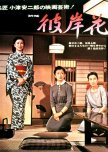
Această recenzie poate conține spoilere
"Can't I find my own happiness?"
Ozu once again examined how a traditional family was forced to confront modern thinking in relation to love and marriage. He did so in a humorous manner without wandering into the dark side as he was capable of doing. In Equinox Flower a father with two independent minded daughters found himself suffering in a sea of his own inconsistencies from which only the women in his life could save him.The film opens at the train station with a storm warning. If only the men in this film knew the storm of independent thought that was going to upend their lives. Hirayama Wataru gives an emotional toast at a young couple's wedding. He praises them for marrying for love because his marriage had been a pragmatic arranged marriage. Later that week an old friend visits him and asks him to check on his daughter, Fumiko, who has left home. She didn't want an arranged marriage estranging their relationship. Wataru found her working at a bar and in love with a musician, but happy and healthy. No problem there. One of his daughter's friends, Yukiko, asks for advice dealing with her mother who is always trying to matchmake for her. He tells her not to be in a hurry to marry. "You may think marriage is golden, but it can end up being brass." When she dreams of a love match-no problem. When a young man name Taniguchi comes to his office asking permission to marry his oldest daughter, Setsuko---big problem. He was not consulted and didn't even know they were dating. Without realizing it he begins to set into motion the kind of estrangement his friend had with his daughter. The women around him begin to mobilize in their own subtle and not so subtle ways to help him change his mind and give his blessing to the young couple.
Setsuko and Yukiko pinky swore to help deal with their domineering parents and Yukiko laid the perfect trap for Wataru. Wataru's youngest daughter, Hisako, pushed for Setsuko to have a love match knowing it would be her turn next. Kiyoko, gently nudged her husband to do the right thing, always believing that he eventually would. With four women against him he never stood a chance no matter how controlling and cantankerous he could be.
I had to remind myself numerous times that this was 1958 when Wataru dropped his clothes on the floor for Kiyoko to deal with, told her to turn the radio off like you would a child, and went drinking or on reunion trips with his buddies. He also grounded Setsuko and told her to quit her job because he was angry with her. Ozu's wives always seem terribly confined to the house with no social life whatsoever except caring for their husbands. Wataru worked late and spent time afterwards with male friends. Kiyoko stayed in the house with only a maid for company. When Kiyoko yearned for the days during the war when the family huddled together in the bomb shelters because they were actually all together, it was sad indictment on her life.
Ozu put color to good use in his first film to use it. While much of the settings were beige and gray, most of the men dressed in gray suits as well, he displayed bright pops of color in red, green, and blue. The women, with the exception of Kiyoko, often wore bright colored kimonos. His teapot (red) had a couple of closeups and trains also figured into the story as they usually did. I have never grown tired of his meditative compositions and framing of shots. The colors he chose were as soothing as they were in black and white. The only drawback to his style, for me, was as ever, the face nearly straight onto the camera framing which was jarring during dialogues because the characters were looking at me and not the character they were conversing with, bouncing back and forth like a ping pong.
Papa Hirayama came across like a 1950's man, one who was used to getting his way in everything at home. What was different was that the women in his life called him on it. Yukiko complained in the same way about her overbearing single mother and Fumiko refused to go home because her father wanted everything his way. The old tradition of a parent determining who their child would marry was giving way to the young people wanting to marry for love. And while Wataru could appreciate that for everyone else's daughter, he had trouble letting go of control of his own. Fortunately for him, the women in his life banded together to show him his own hypocrisy. He also learned when a woman said "it's fine" that he should not assume he had won the argument. Wataru was right though, it takes a lot of work to turn brass into gold in a relationship.
9/9/23
Considerați utilă această recenzie?
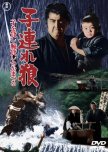
Lone Wolf and Cub: Sword of Vengeance
2 oamenii au considerat această recenzie utilă
Această recenzie poate conține spoilere
Samurai daddy take your kid to work day
Lone Wolf and Cub: Sword of Vengeance was the first in a series of movies about a disgraced ronin caring for his baby son while seeking revenge on the people who murdered his wife and framed him for treason. This ronin of few words left a trail of spurting arteries along with piles of limbs and decapitated heads.Ogami Itto was the honored executioner for the Shogun until one day the treacherous Yagyu clan decided they wanted his position for their clan. They murdered his wife and set him up on treason charges. The wily swordsman not only escaped the executioner's blade but won his freedom as long as he stayed out of Edo. Pushing a secret weapon laden baby cart, he had a sign reading "Sword for Hire" and "Son for Hire." No longer using his feared name, he and his son were now known as the Lone Wolf and Cub. An assassination job took him to a hot spring in a mountain village being terrorized by bandits. Playing a sheep looking after his lamb he found himself among captured travelers. It didn't take a fortune teller to know what the fate of the bandits would ultimately be.
Ogami had his own code of righteousness formed by his job and his responsibility to his son. It meant when he saw a woman being raped and her father murdered that he didn't step in, which didn't exactly grant him a halo. Nor did it stop him from servicing a prostitute in front of crowd in order to "save" her. A man's gotta do what a man's gotta do. Like other 1970's movies, there was plenty of sexploitation. Had they toned down the naked women and sexual violence I would have enjoyed this movie more.
This film felt like they were setting the table for more courses to come. I was surprised how quickly the movie was over and how little happened in the present as there was copious use of flashbacks. Wakayama Tomisaburo was an accomplished martial artist and his skill showed during the fights. At least the fights I could watch when I wasn't closing my eyes during the severing of limbs and buckets o' blood spewing everywhere.
Lone Wolf and Cub reminded me of the Mandalorian only with more blood and flying body parts. Ogami's son could have given Baby Yoda a run for his money in the cute kid with a lethal daddy department . If you can overlook the '70s sexploitation and are in the market for an old school gore fest samurai with a baby who is also seeking revenge film, this is it.
8/31/23
Considerați utilă această recenzie?
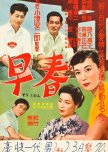
Această recenzie poate conține spoilere
"Everyone's dissatisfied"
Ozu explored the family life of a cog in a wheel salaryman. Sugiyama Shoji personified the endless, hopeless life of the literally white collared worker who made just enough to live on but not enough to get ahead, much less dream of something different.Shoji and Masako have been married for a number of years but after the death of their baby son have drifted apart emotionally. Shoji's family is now primarily populated by the people he works with, ex-army buddies, and mahjong companions. Masako has a widow neighbor and a jaded mother she can turn to. Due to Shoji's nighttime habits of mahjong and drinking, the couple are behind in their rent. The disaffected worker is about to knock Ozu's ubiquitous train off the tracks when he begins an affair with a younger woman named Goldfish.
Aside from A Hen in the Wind's male lead, Shoji was one of the most unsympathetic leads in an Ozu film that I've seen so far. He frittered away the family money, barely spoke to his wife and treated her like a maid. He brought drunk friends home to sleep it off and walked out one evening when he surprisingly came home early and dinner wasn't ready yet. To top it all off he scarcely covered up his affair which seemed cruel. His wife did all the laundry and he didn't think she'd notice the lipstick faithlessly adorning his clothing? He didn't think she would smell another woman on him when he sauntered in after having sex with Goldfish? When she finally did confront him, he tried to gaslight her and lied like a five-year-old. With the exception of one woman who told her to stick to her guns, others, including her mother, convinced her to apologize for her part in the marital estrangement and go back to her husband. Thankfully, Shoji did finally apologize to her, however with all the emotional depth of apologizing to someone you'd accidentally bumped into. As the husband in Hen in the Wind did, he wrapped up the story with a "let's start all over again" happy ending. Ozu banged on about how disillusioned salarymen were and largely blaming Shoji's infidelity on his employment dissatisfaction. Where was the insight into the grief Masako was obviously still dealing with and her loneliness? Where was the compassion for a lonely woman with a husband who spent most of his time away from home? Why did she have to apologize for her husband sleeping with another woman?
Ozu's composition and framing were as exquisite as ever. There were the typical scenes in an Ozu film with singing and game playing, occasionally both at the same time. The 2 hours and 24 minutes film dragged badly in places. How many drinking and singing scenes were truly necessary? The waxing on about the meaninglessness of a salaryman's life became repetitious. Over and over again, Shoji was shown spending time with just about anyone but his wife which began to wear thin. It was doubly painful because Shoji never mentioned loving his wife whereas numerous characters commented on Masako's love for Shoji. At no point did Ozu show the reason Shoji decided to turn his marriage around other than for convenience's sake which made the decision emotionally hollow.
Ozu's insight into the long hours and drudgery of death by overwork was stinging. The commentary on women with unfaithful husbands was disheartening. The nicest comment about wives was Shoji's older friend played by Ozu regular, Ryu Chishu. "No one is more dependable than a wife." Sounds like something you would say about a brand of tires or dishwasher. I didn't find the unfaithful and cold Shoji a compelling or sympathetic character. He was an irresponsible husband who did nothing to earn his wife's forgiveness. Ozu made many meaningful films, for me, this wasn't one of them.
8/29/23
Considerați utilă această recenzie?
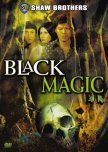
Această recenzie poate conține spoilere
Watch only if you have a strong stomach
In the 1970's movies and television dug into the occult and often mixed it with a little sexploitation. Black Magic was one of those movies. The movie boasted a strong Shaw Brothers cast-Ti Lung, Lo Lieh, Tien Ni, Ku Feng and Lily Li. It also had a host of slimy creatures. You'd need a strong stomach to watch it.Ku Feng played the Black Magic magician with a laughable gray wig. Lo Lieh loved Tien Ni's money so he needed her to fall in love with him. Tien Ni was in love with Ti Lung's body and needed him to fall in love with her. Ku Feng wanted to sleep with Tien Ni. Finally, Ti Lung and Lily Li had a wholesome love that was definitely going to get messed up by all the lust and greed in the air. The Black Magic started flowing and nobody ended up with exactly what they desired. Fortunately, Ku Wen Chung played a good priest who helped sort things out by the end.
There were plenty of dead bodies, nude bodies (some writer had a fetish about women expressing breast milk), snakes, worms, centipedes and other vile bits. I'd have to include Ti Lung's horrible wig among the scary objects. The only thing that caused me to rate this as high as I did was the hilarious finale where good and evil fought it out with cheap 1970's special effects and sound effects on top of a building scaffold. I watched it on my quest to see all of Lo Lieh's movies. Other than that, I couldn't recommend unless you enjoy films with all of the above.
8/26/23
Considerați utilă această recenzie?
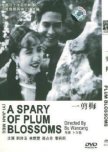
A Spray of Plum Blossoms
2 oamenii au considerat această recenzie utilă
Această recenzie poate conține spoilere
"One who readily falls in love can hardly be a faithful lover"
A Spray of Plum Blossoms was a modernized and loose adaption of Shakespeare's first play, The Two Gentlemen from Verona. This is one of only seven Ruan Ling Yu films readily available and while her part is relatively small, she still makes the film worth watching. The silent version I watched used Shakespeare's names for the characters and I will do the same in this review.400-year-old spoilers ahead! Valentine and Proteus are friends from military school. Proteus falls in love with Valentine's sister Julia and vows to take care of her while his friend leaves for a post at Guangzhou. Upon Valentine's arrival he falls in love with the general's daughter Silvia, who reciprocates his feelings. In time, Proteus is assigned to the same post but he doesn't leave before declaring his undying love and fidelity for Julia. Proteus arrives at the post in style via a bi-plane. Proving he truly is the General of Perfume he immediately falls in love with Silvia.
Proteus betrays his friend, causing the General to discharge and exile Valentine. Proteus has competition for Silvia in the form of Thurio, another soldier vying for her hand and the general's favor. Silvia refuses both as her heart has already been given to the disgraced Valentine. When Julia finds out that her brother is in trouble, she travels to the army post and confronts Silvia not about her brother but about Proteus. Silvia convinces her that she isn't in love with him and that he is the reason for Valentine's predicament. Silvia and Proteus take a horse ride together so that she can make him confess. He does but then tries to rape her. Thurio rescues her but has the same violent impulse that Proteus had. Fortunately, the Plum Blossom Bandit who is Valentine in disguise saves her. The next day she and Julia (who is dressed as a male soldier) are captured by bandits on a ride into the countryside. They are brought to the Plum Bandit and the women and Valentine are reconciled. Along with the bandits they set a trap for Proteus. After being confronted by Valentine he confesses his crimes and attempts to shoot himself but is thwarted by Valentine. General Sze arrives and Proteus confesses to him as well. Valentine and Proteus make up even though Proteus tried to rape his girl and had him exiled. It's implied that Proteus and Julia get back together and everyone is one big happy family.
I had hoped that this film would avoid Shakespeare's misogynistic 'bros before hoes' ending. At least Valentine didn't offer Silvia to Proteus in this film. Aside from the unsatisfying ending, I enjoyed this tale of true love, friendship, betrayal, villainy, and without earning it-reconciliation. Ruan and Jin Yan always had a nice chemistry, even if they were playing siblings. Lin Chu Chu as Silvia gave a wonderfully spirited performance as the woman who was loyal to Valentine and to her new friend Julia. It was an interesting take on the military with women leading the men and in uniform in various situations.
The existing film that I watched had been cropped. The words on the intertitles were cut off on the left and bottom. At other times, the film was damaged making it hard to read the light words. There was no music. I've watched enough silent scoreless films that the lack of music doesn't even register anymore. This film felt very ambitious compared to other silent films. Though the core cast had most of the lines there were numerous extras. Silvia's plum blossom room came across very stylistic. Aside from the military camp, the characters were filmed in what would have been beautiful, wide scenery. Silvia escaping on horse with the dastardly Thurio right behind her was exciting and well shot.
I think Shakespeare would be pleased that his play was first made into a move in 1931 and is still available nearly 100 years later. He might have had to get used to the idea of women as actresses but I think Ruan Ling Yu and Lin Chu Chu could change his mind.
8/26/23
Considerați utilă această recenzie?
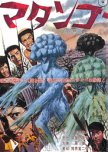
Această recenzie poate conține spoilere
"This yacht will never sink, it cost a lot of money" Wanna bet?
The 1960's were a fun time for monster movies, case in point this film---Attack of the Mushroom People AKA Matango. The film boasted alums from Godzilla and Kurosawa movies, not a bad way to build a cast for a dark movie about survival on a nightmarish jungle island.For an older generation or ones who've spent time watching TVLand, see if this sounds familiar---The movie begins with a jaunty tune as seven people frolic on a yacht. A millionaire, the skipper, first mate, television star, professor, and naïve young woman become stranded on a remote island after their yacht is blown off course during a terrible storm. Gilligan didn't have a writer on his island but this island does and this first mate was far more deadly and lecherous than the Skipper's little buddy. Too bad the professor's field was psychology or maybe he could have made a phone out of mushrooms as there were no coconuts to be found.*
The survivors found another ship run aground near the island with a captain's log stating to not eat the mushrooms. Given that the mysterious ship had been studying the effects of radiation on plants and animals, it left the door open that the mushrooms on the island (mushroom cloud?) might have been a scientific disaster either theirs or someone else's. Strange, colorful fungi covered the surfaces in the rooms of the wreck. Human nature began to rear its ugly head as fear and the lack of food chafed on everyone. The class divides fractured causing friction from the top down. Money was of little use when a person was starving.
"The weak constraints of society disintegrate in the face of the will to survive in harsh circumstances."
As polite society broke down and despair prevailed, the survivors slowly succumbed to eating the mushrooms, leading to a terrible fate. We know that the professor survived for he was shown in the opening shot, confined to a psych ward. After the grim transformations of his friends and acquaintances, he was left wandering if he should have stayed on the island as Tokyo could be even more cruel.
Matango built the story slowly, focusing on the different characters and showing their strengths and slow decline as hope withered away. It was fun seeing Koizumi Hiroshi have a nice meaty role after all the Godzilla films he worked in. This film included actors from both Godzilla and Kurosawa films, as director Honda worked in both. The acting was hit or miss with the cast, but the writing for them was stronger than most Kaiju or other monster fare from the era. The story grew darker as civility slipped away with hunger and desire taking hold. The mushroom creatures were typical 1960's people in rubber suits, but disturbing enough. The music and fog set the stage for a creepy tale to unfold.
Unlike the castaways on Gilligan's island Matango's castaways were jealous, lustful and murderous, mortal sins only heightened by the psychedelic fungi. The need to drift away into hallucinations instead of fighting to survive slowly dragged most of the castaways down, transforming them into the fungal creatures. Hunger can drive a person mad but so can monstrous psychedelic mushrooms. Attack of the Mushroom People was a mind-bending study of how people behave when societal norms collapse and when they lose the will to fight or even live.
8/24/23
*My comparison to Gilligan's Island was for fun, keeping in mind that Gilligan premiered in 1963 a year after this film.
Considerați utilă această recenzie?
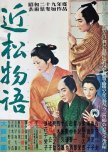
The Crucified Lovers
2 oamenii au considerat această recenzie utilă
Această recenzie poate conține spoilere
"People's fates take such strange turns"
Going into a film titled The Crucified Lovers, it was a safe bet that the romance was not going to be filled with sunshine and roses. Mizoguchi took the 17th century ideals of honor and tradition and tore them open exposing the hypocrisy and cruelty underneath.Osan was a young woman married to a man thirty years her senior. Ishun was a wealthy owner of the printing company that supplied the Imperial court with calendars. Mohei was Ishun's right hand man who was nearly worked to death in his job. Otama served the family and was the target of Ishun's unwanted nightly advances. Though Ishun offered Otama her own house, spent lavishly on court officials and loaned important people large sums of money, he was unwilling to spare what amounted to pocket change to Osan's brother to save the family home. His miserly short-sightedness and lecherous ways along with Osan's brother's spendthrift habits would bring down both families while blaming it on others.
When Osan and Mohei were caught together in a completely innocent situation, Ishun accused them of adultery and ordered Osan to kill herself. He planned to have Mohei arrested for stealing his seal. The situation played right into Ishun's plan to rid himself of Mohei who was Otama's love interest. Mohei escaped and Osan fled, incidentally meeting up later. After attempting to leave the area with men on their trail, they decided to commit suicide at a lake. When Mohei confessed his love for her, she returned it and decided to live. Much of the rest of the film played out like The Fugitive with the couple on the run, constantly being chased. They were turned away by family who feared culpability in their crimes. Ishun wanted the situation handled quietly so his business would not be ruined by scandal. What he didn't know was that his own traitorous worker was feeding information to his rival. After the couple was captured and refused to be parted everything came unraveled for the master printer. Not only did his rival revel in his downfall, but the many noblemen who owed copious amounts of money to him hastened his ruin. The lovers went to their doom hand in hand serenely smiling finally free from the cruel constraints of the world they lived in.
Mizoguchi framed much of the film in tight restrictive spaces. Only when the lovers committed to staying together in the mountains did the spaces open up freeing them to breathe. Kagawa Kyoko was ethereal as the traditional wife, Osan. As Osan was forced to live on the run, Kagawa showed her fear, despair, and then a love that lifted her spirits above their dire situation. Hasegawa Kazuo was 23 years older than Kagawa but was able to convey the loyalty to his master's family and his conflicted love for Osan as well.
The lovers were not only guilty of adultery but also crossing class lines which was a serious violation in and of itself. The hypocrisy that men could sleep with anyone they wanted while a woman caught in adultery was literally crucified if her husband didn't kill her first was brought to the fore. As the female servants reacted to two lovers being paraded to their deaths, they wondered what horrific crime they had committed to suffer one of the most awful deaths. They hadn't killed anyone. While Osan and Mohei were initially innocent, Ishun's activities were reprehensible from the start. Had Ishun been willing to pry his purse open for a family member and kept his hands to himself, this entire tragedy might have been avoided. No one seemed to care about Osan and Mohei's fate, compassion was far outweighed by a rigid class and social system that had no room for error when it came to misbehaving women.
The Crucified Lovers aka A Tale from Chikamatsu ran the gamut of emotions as Mizoguchi tackled social traditions and gender rules. Beautifully filmed and well-acted, the tragic story of two falsely accused people who briefly found love and happiness across class lines and on the run was a challenging but rewarding film to watch.
8/23/23
Considerați utilă această recenzie?

Crouching Tiger, Hidden Dragon: Sword of Destiny
2 oamenii au considerat această recenzie utilă
Această recenzie poate conține spoilere
"All this for a sword"
Crouching Tiger, Hidden Dragon was epic storytelling and my highest rated wuxia. For this sequel without Ang Lee and being a Netflix release, I lowered my expectations and was not disappointed. Sword of Destiny was smaller in scope and storytelling, but still a fun movie. Yuen Woo Ping shot it like a more traditional wuxia, albeit with a bigger budget. More than that Michelle Yeoh and Donnie Yen reteamed again (loved them in Wing Chun!), and that was enough to make my martial arts loving heart beat with love.Yu Shu Lien thought long dead returns to mourn Sir Te and helps his son secure the legendary Green Destiny sword. The evil and ruthless Hades Dai, wants to rule the martial world and is determined to have the Green Destiny for himself. Silent Wolf, whose rumored death was greatly exaggerated puts together a team of five martial artists from the Iron Way to help protect the sword. Thrown into the battle is Snow Vase, a young martial artist who wants the sword to kill Hades Dai and Wei Fang, a young martial artist who works for Hades and has been tasked with stealing the famous sword. They have a connection that will draw them together all under the watchful eye of Shu Lien. While the warriors work together to keep the sword and each other safe, Shu Lien must decide if she can forgive Silent Wolf for his past mistakes.
The movie was only around ninety minutes long and relied heavily on Michelle Yeoh's and Donnie Yen's chemistry. The supporting characters were not given enough time to be fully developed on either the good guys' side or the bad guys', yet they were archetypes from the genre which gave the viewer a shorthand of what to expect from them-the lone warrior, loyal martial artists, a blind witch, ruthless evil fighters, etc. Snow Vase and Wei Fang were the young warriors who had to find their redemption and way along with a little flirting under the guidance of Shu Lien and Silent Wolf.
The fights were all well-choreographed which was to be expected by Yuen Woo Ping. Was there high-flying action? It was a wuxia, so you betcha! Whether it was Michelle fighting an ambush in the forest, Donnie nonchalantly taking out a gang of hotheads at a tavern, or a spectacularly filmed fight on a thawing frozen lake, they were all outstanding thanks to Michelle and Donnie's experience. Michelle still had a quickness and fluidity that made her captivating to watch. Donnie brought a playfulness and solemnity to his fights depending on the opponent. Watching these two veterans fight back-to-back brought me sheer joy. I loved that there was a tower for the final battle. It brought back memories of Cheng Pei Pei (Jade Fox) having to confront the bad guys with their tower in one of her old movies. And the ubiquitous outdoor tavern from many an old kung fu movie was the perfect setting for the audience to meet Silent Wolf and the Iron Way fighters.
Michelle Yeoh has a regal bearing and elegance that cannot be duplicated. Her expressive face and voice pull you into her character. Only she could make a line like "You will not find it there nor take it from here" believable. Much has been made of the movie being filmed in English and later dubbed with Mandarin. Selfishly, I'm happy it was. There was ferocious backlash over Michelle's accented Mandarin in the original. I tried watching the dubbed version of Sword of Destiny but the professional Mandarin voice actress sounded incredibly generic and flat, sapping all the energy and nuance out of Yeoh's performance. I find Michelle's voice acting essential to her performance and was relieved to hear it in the English version. Maybe it was the wig or makeup but Donnie has never looked better or more romantic than in this film. And as you would expect of him, he handled the fight scenes splendidly. Harry Shum gave a complex performance as the young warrior at a crossroads in his life. The weakest performance of the main characters was Natasha Liu Bordizzo as Snow Vase. This appeared to be her first role and it showed. Finally, Jason Scott Lee made for a sinister villain, even if he wasn't given much to do. This was a Chinese and Hollywood/Netflix amalgam, and an international one at that, with actors from Malaysia, Hong Kong, the USA, Australia, China, Korea, New Zealand, and Vietnam. How you feel about a multi-national cast in a kung fu staple may affect your viewing pleasure.
For me, I can look at this film as completely separate from the original. It was not a perfect film, but for the genre it was quite good, I've watched my share of terrible ones. It did take some time to alter my perception of it being in English and not Mandarin or Cantonese, which did take away the authentic feel to it. There was a bit of cheese in it, but the original had its share, too, most wuxias do. The cinematography was nice, fights were solid, the scenery was beautiful, the OST felt integral to the story, aside from that ugly green sword-the props, sets and costumes were excellent, and most of the acting was acceptable to exemplary. Most of all it entertained me. I have watched this film numerous times and still enjoy it upon each viewing. I'm able to watch Michelle Yeoh and Donnie Yen once again fighting side by side which makes this a winner in my book.
8/4/23
Considerați utilă această recenzie?
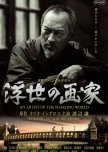
An Artist Of The Floating World
2 oamenii au considerat această recenzie utilă
Această recenzie poate conține spoilere
"The essence of cowardice"
The world of An Artist of the Floating World was built on sets with overly saturated colors like a series of beautiful paintings. The story began with an old man on the Bridge of Hesitation as he grappled with his memories, his place in the world, and regret. The only problem was that his memories were unreliable as he reached back into a fading past that still had the power to affect his present.Aging artist Ono Masuji began to flow in and out of memories when his youngest daughter Noriko was in marriage negotiations. Because the last negotiations fell through, his oldest daughter told him that she hoped he took "precautionary steps" in regards to the other family's investigations into theirs. His memories caused him to travel to the time when his father burned his paintings refusing to have an artist for a son which only made Ono's ambition burn brighter. He began working in a mass art production company and then for a master artist who specialized in the decadent "floating world" of the night and geishas. After the invasion of China, he entered the artistic world of propaganda.
Setsuko's cautionary words caused him to re-examine a chance meeting with the former prospective son-in-law that went deeper than his initial thoughts. A business owner involved with the war and a propagandistic composer both committed suicide, further stirring old feelings. He discovered the younger generation wanted men involved in imperialist Japan to admit their mistakes and take responsibility for the consequences of their actions on the people and country. He began to reflect on his past loyalty to the country through a new lens.
I have never read the book and can only hope it filled in a few of the gaps left in this film. There were times I wondered if I was watching something akin to A Beautiful Mind. Duplications of actions occurred with different characters, Ono's daughters were unaware of conversations he said they had, and his hallucinations made me wonder if some characters were real or personifications of his guilt. Was he never as important as he thought or had he faded into irrelevancy in the new world order quickly? The constant flow from the present to different points in the past could make for a dreamlike experience. If we had to have a guide in this fluid world it would be Ken Watanabe, he did an amazing job as a man who had to come to terms with a career that not only did not endure but went up in flames.
As if written in first person, Ono narrated the film but he was an undependable narrator who admitted he wasn't sure what he said or what others said. By seeing everything through his unreliable perspective, there was no touchstone to evaluate his comments, no opposing voice to guide to a greater grasp of the truth. In the end it was an interesting film about a country coming to terms with and also suppressing a militant past. The younger generation and those "traitors" who suffered for daring to question the war confronted the old guard and wanted an apology. "…now we clearly know who the real traitors were." Ono slowly began to recognize his responsibility in the collective suffering even if his memories, like this story, were ambiguous at best.
8/2/23
Considerați utilă această recenzie?

Wrath of Daimajin
2 oamenii au considerat această recenzie utilă
Această recenzie poate conține spoilere
Beware the mountain!
The Wrath of Daimajin was the third in a series of films starring the giant mountain god who restored balance. The film focused on four children attempting a rescue of their family members who had been coerced into working for an evil samurai. This was a far darker film than I anticipated given the nature of Kaiju films starring children in the 1960's.When the evil Arakawa kidnaps loggers from a small village, logger Sanpei escapes over the Majin mountain arriving home mortally wounded. He's able to tell the villagers that the rest of the men are being used as forced labor in Arakawa's sulphur mine in aptly named Hell's Valley. The village's lord isn't immediately concerned and fears snow may fall soon and doesn't send any help. Four boys decide to take matters into their own hands and runaway to rescue their loved ones. The only way to Hell's Valley is over the Majin mountain. Brothers Tsurukichi and his little brother Sugi, friends Kinta, and Daisaku bravely face the mountain everyone avoids due to the capricious mountain god who inhabits it. When they come upon the stone statue of the deity, they give proper homage before setting forth. The boys not only face natural dangers, but also three samurai ordered to hunt down Sanpei. Regardless of their young age, the samurai repeatedly attempt to kill the boys when they are discovered. Far from a romp in the woods, the boys pay a terrible cost for their adventure.
Meanwhile at the sulphur mine, the evil samurai shows why he's evil when he throws a thwarted escapee into the boiling sulphur lake. The brothers' father keeps hope alive that he will see his sons again. The villagers decide to go after the boys when they realize they are gone. When the parents arrive at the stone statue, it begins to bleed, and finally the titular character breaks forth when his hawk avatar is killed. At this point, the stomping begins as the mountain god stirs up a blinding snow storm to herald his arrival.
As I mentioned, this film was much darker than I had anticipated, going to a place most movies with children protagonists never would. Two likeable characters were killed and another attempted suicide to appease the god. There was a bloody hawk attack and a dangerous rafting trip on a swift river.
The fake snow actually looked good when Daimajin finally arrived. Kaiju usually show up by the 39:00-minute mark, this god couldn't be bothered until 65 minutes into the movie. The miniatures and fake scenery blended well with the real scenery. The shots of forests, mountain streams and lakes were quite lovely as the boys made their way across the scenic landscapes which belied the deadly forces at work. Arakawa's hideout near the mine was smaller than the large buildings Godzilla used to trounce through, but the more manageable size actually accented the stone warrior's terrifying force against the evil doers trapped in Hell's Valley.
The four child actors were a pleasant surprise, with natural but compelling performances. The adults all acquitted themselves well, too. The writing ultimately did exactly what we needed, Daimajin ruthlessly destroyed the evil forces, who were well deserving of his punishment. Whether the sacrifices of innocents gave a deeper emotional level to the film or were unnecessary will be up to the individual viewer to decide.
Wrath of Daimajin won't go down as one of the great monster movies but it was oddly satisfying. The god with a heart of stone didn't arrive in time to save important characters, or keep anyone from being injured but when he finally decided to restore balance he did so with a vengeance.
7/22/23
Considerați utilă această recenzie?
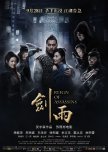
Reign of Assassins
2 oamenii au considerat această recenzie utilă
Această recenzie poate conține spoilere
The window of opportunity has opened
Reign of Assassins is a good old-fashioned wuxia. Though lacking the artistic flair of Ang Lee and Zhang Yi Mou, it had more than enough exciting sword action and compelling acting to set it well above average. With assassins around every corner, hidden identities, and a little romance thrown in, ROA delivered.Very minor spoilers:
The Dark Stone gang murders an official and his son in order to possess the remains of legendary monk Bodhi which are rumored to make the one in possession of them the ruler of the martial world as well as the source to miraculous healing. One of the assassins, Shi Yu, escapes with the remains and goes on the run with most of the assassin world searching for her. A soon to be monk named Wisdom helps her hide and they fall in love. He also gives her valuable information about the weaknesses of her Water Shedding sword technique. From her experience with him, she determines to turn over a new leaf. She visits Dr. Li who gives her a new face and identity. The freshly named Zeng Jing sets up a shop in town and soon falls in love with the local courier, Jiang Ah Sheng. He's a kind-hearted, clumsy, gentle man who seemingly couldn't hurt a fly. But the course of true love never runs smoothly and soon The Dark Stone gang and other contenders for the remains arrive in town when her secret identity is revealed.
This film might not have worked as well if Michelle Yeoh had not played Zeng Jing. She gave a complexity to the role that made her magnetic to watch. She and Jung Woo Sung had nice chemistry together and made for a believable couple. The Dark Stone gang was comprised of an eclectic group of killers. The Wheel King wore an obvious fake moustache and had personal reasons for wanting the remains. There was also an older assassin who was a magician, an assassin who used darts and had a loving wife at home, and a promiscuous and blood lusting new recruit who had murdered her fiancé and his family. Director Su Chao Pin took his time developing the characters and their complicated relationships which gave greater stakes to the fights and more fire to the vengeful surprises as they unfolded.
The fight choreography was creative and highly entertaining. Swords tore through the air so quickly, the action could be hard to follow. Wire-fu was used without making it the focal point and there were no Matrix slow-motion moves too often overused in films. Michelle Yeoh as always convincingly displayed a graceful dexterity with weapons and a dancer's flexibility with her kung fu moves. Korean actor, Jung Woo Sung acquitted himself well when it came his time to participate in the action.
This film embodied the important aspects of a good wuxia-revenge, quality fights, a little romance, and a satisfying redemption arch. Most of all, Reign of Assassins featured a captivating female swordswoman who evolved as a character and was allowed to fight her own battles. Michelle Yeoh once again demonstrated why she is the queen of martial arts movies.
7/19/23
Considerați utilă această recenzie?
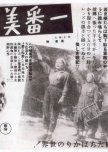
The Most Beautiful
2 oamenii au considerat această recenzie utilă
Această recenzie poate conține spoilere
Kurosawa WWII propaganda film
In 1944 Kurosawa Akira made The Most Beautiful, a propaganda movie about women volunteering to make lenses used in the war machine. Heavily censored and primarily to boost morale, as most wartime propaganda films were/are, Kurosawa chose to show not only the commitment of the women involved but also the sacrifices they made with their families and their health.Director Watanabe, a young woman who calibrates lenses at the Hiratsuka factory, works with management and with the workers. When the women are given the order to increase production by 50% over the next four months, they are offended because the men were ordered to increase theirs by 100%. Watanabe convinces the company that the women can increase production by 67%. As the women boost their efforts, they are also called upon to create a drum and fife corp. Everyday they march down the street outside the factory. When production decreases they are told to do something fun and begin playing volleyball in their free time. As days drag on, fatigue begins to wear on their bodies and minds. Illnesses, a broken leg, and bickering take place. Despite the setbacks, all of the women who recover cheerfully return to once again do their part for the war effort. Watanabe sees their responsibility as critical to the men fighting, how even one defective lens could mean a man's death, and the man's death could lead to a loss for the military. Follows the old story "For want of a nail the shoe was lost, for want of a shoe the rider was lost…" She goes to obsessive lengths to make sure a lost uncalibrated lens is found. Even when a parent dies and the company says Watanabe should go home, she refuses, determined to continue the mission, grieving silently to herself later.
There were many propaganda signs hanging about. "Follow the example of the war dead." "Follow the example of Yamamoto." "Troops are in the enemy's sights." And the main director's advocation of "One can't improve productivity without improving one's character," was quoted often. Aside from the factory being populated by women, the "men" who also worked there in the ranks looked like boys. The management was made up of middle-aged men, but the workers seemed quite young.
Irie Takako played what amounted to a house mother, but a woman the young women admired and listened to. Yaguchi Yoko as Watanabe was the heart of the story as she struggled to motivate the women in her charge to work harder and also managed their personal problems and illnesses. Yaguchi would marry Kurosawa the next year. Shimura Takashi had a glorified guest role at the beginning of the film as the director of the factory. All of the supporting management characters were overly benevolent and compassionate as if to tell people it would be safe to send your daughters to work and live in these facilities.
Kurosawa was able to make a film as much about the dedication of the young women and the toll the work took on their bodies and minds as he did about their role benefiting the military and the country. At 85 minutes it felt much longer as there was only so much I could watch of people manufacturing lenses and hearing propaganda. The historical aspect of it was interesting but as a piece of art, not so much, though Kurosawa did what he could. If you're interested in old propaganda films or are a Kurosawa completionist, I fall into the latter category, it's worth checking out. Otherwise, it might be best to skip to One Wonderful Sunday or Drunken Angel.
7/18/23
Considerați utilă această recenzie?

 54
54 191
191 11
11






















